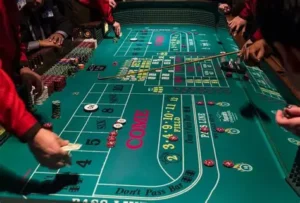Are You Trading or Gambling?
In the high-stakes world of the stock market, it can be hard to tell the difference between disciplined trading and outright gambling—especially in an age where commission-free apps, social media hype, and instant gratification blur the lines.
But make no mistake: trading and gambling are not the same thing—unless you make them the same. The difference isn’t in the tools or the market. It’s in the mindset, the method, and the consistency behind every decision you make.
So, ask yourself: Are you trading… or gambling?
1. Trading Is a Business. Gambling Is a Thrill.
Professional traders approach the market the way a CEO runs a company—methodically, strategically, and with measurable goals. Every decision is based on a repeatable process, backed by data and tested over time.
Gamblers, on the other hand, show up for the rush. There’s no edge. No playbook. Just instinct, impulse, and a hope for luck.
If you find yourself chasing trades, doubling down on losses, or switching strategies every week… you might be gambling.
2. Trading Uses Risk Management—gambling Risks It All.
Ask any successful trader, and they’ll tell you: capital preservation is everything. That means using stop losses, sizing positions correctly, and knowing when to walk away.
Gamblers bet big to win big. There’s rarely an exit plan—only hope that the next move pays off. This “all or nothing” mentality might win sometimes, but over the long haul, it’s a one-way ticket to a blown account.
If you’re risking more than you can afford to lose—or letting one bad trade wipe out weeks of progress—you’re not trading. You’re spinning the roulette wheel.
3. Trading Follows a Plan. Gambling Follows a Hunch.
Traders build detailed plans before the bell rings. They know which stocks they’re watching, the levels they care about, their entries, exits, and risk parameters.
Gamblers wake up and “see what’s moving.” They jump into trades without clear setups or reasons, and they stay in too long because they “feel like it’s going to pop.”
If you’re trading based on gut feeling instead of defined setups and rules, you’re not executing a strategy—you’re just guessing.
4. Trading Tracks Performance. Gambling Ignores the Math.
Successful traders journal everything—wins, losses, entry and exit logic, emotional state, and what they’ve learned. They constantly refine their approach and make decisions based on data.
Gamblers only remember the big wins (and conveniently forget the losses). They resist accountability because it forces them to confront a hard truth: they don’t have an edge.
If you’re not tracking your trades or learning from your mistakes, how will you ever improve?
5. Trading Controls Emotion. Gambling Is Driven By It.
Markets are emotional by nature. Fear, greed, revenge—every trader feels them. But the pros have tools and habits to manage those feelings.
Gamblers are their emotions. They FOMO into trades, panic-sell on pullbacks, and revenge-trade after losses. They confuse volatility with opportunity and excitement with skill.
If your trades are emotional reactions instead of calm, calculated decisions, it’s time to step back.
So, Which One Are You?
If you’ve recognized yourself in some of the gambler behaviors above, don’t beat yourself up. Every trader—yes, every single one—has walked that path at some point.
But here’s the good news: you can change it.
With the right education, a rules-based strategy, and a focus on process over outcome, you can shift from gambling to trading. From hope… to skill. From randomness… to results.
The markets don’t care what you want to happen. However, they will reward consistency, discipline, and a competitive edge. Your job is to build that edge—and stick to it.

